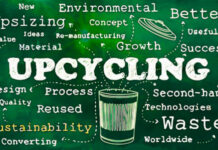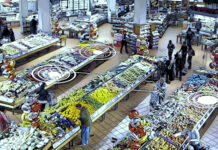The synergy between several research projects, in the Horizon 2020 and Horizon Europe framework programs , enabled the establishment of the Sustainable Food System Innovation Platform. With the aim of sharing innovations developed both within the framework of European projects and in other contexts (i.e., operators, supply chains, universities and research centers). (1)
Sharing data and know-how on the SFS Innovation Platform responds to the interest of agribusiness supply chain operators (i.e., primary production, processing industry, distribution) as well as stakeholders(policy makers, technological providers, civil society). In an Old World where innovation is as necessary as ever.
1) SFS Innovation Platform
SFS Innovation Platform was developed as a result of the SMARTCHAIN project (2) and continued through the synergy of two sister projects that are still ongoing, in the area of ‘Innovative agri-food supply chains: enhancing sustainability-oriented competitiveness.’
- CO-FRESH re-designs and promotes innovative systemic approaches in European agri-food value chains, (3)
- FAIRCHAIN develops innovative models of sustainable development in value chains that integrate local and international food supply chains. (4)
Registration on the platform is free of charge. Registered users can access archives and databases, training through e-learning. With the opportunity to share initiatives and propose networking activities, under the banner of sustainable development in agrifood supply chains.
2) SFS, management
Sustainable Food System Innovation Platform is also managed, updated and developed through collaboration with three other EU research projects. These in turn are dedicated to sustainable development – on the three sides of economic, social, and environmental – in agrifood supply chains:
- EU4ADVICE. Promoting sustainability models inshort food supply chains through empowerment of operators and consumers (#sdg12). Also to implement AKIS(Agricultural Knowledge and Innovation System) at the national level, (5)
- COREnet. Follow-up to the SKIN project, COREnet continues the development of a Sustainable Food Systems advisory system through P2P(peer-to-peer) training services at the European level, (6)
- WASTELESS. Pivotal project in the prevention and reduction of food loss and food waste (FLW) throughout the agri-food supply chains, also in synergy with the sister project FOLOU. instead focused on the reduction of FLW in primary agricultural production. (7)
3) SFS, contributors
Three other projects funded in Horizon 2020 provide content and participate in the focus of the SFS Innovation Platform priorities:
- FOODRUS. Promotion of circular economy and FLW reduction with focus on three supply chains (vegetable, meat and fish, bread) where to test the effectiveness of a mix of 23 technological, social, financial, management, educational, legal and policy solutions, (8)
- LOWINFOOD. Sister project of FOODRUS, involves similar food supply chains (fruit and vegetables, bakery products, fisheries), including consumers. To create value chains with low food waste, lower environmental impact and greater socio-economic functionality, (9)
- PLOUTOS. Innovative information and communication technologies are being tested on 13 pilot projects. Their results are disseminated through the Ploutos Innovation Academy to encourage their replication in different production contexts. (10)
4) GAIN model
The GAIN model aspires to promote collaborations among Sustainable Food Systems players and stakeholders on 4 levels of spatial extension (local, regional, interregional/national, international). Such synergies have enabled and/or are enabling:
- share value-added models (based on data, money, authority, tools, expertise and contacts) across a network of hundreds of local product e-commerce platforms,
- Strengthen social engagement and networks to re-establish the connection between consumers and farmers,
- apply blockchain technology to business models inspired by the SDGs (e.g., water recovery, carbon capture, food as medicine, etc.),
- Promote the widespread adoption of innovative technologies, from the ‘earlyadopters‘ to the ‘early majority‘.
5) SMARTCHAIN Innovation Hubs
9 Innovation hubs of innovation and collaboration have been established since the inception of the SMARTCHAIN project in as many countries on the Old Continent. France (ACTIA), Germany (UHOH), Greece (UOC), Italy (UNIBO), Netherlands (AMP), Serbia (UOB), Spain (AZTI), Switzerland (WBF), Hungary (KIS). With the aim of strengthening co-creation and collaboration among partners and ensuring a flow of information within the SMARTCHAIN consortium.
Innovation Hubs have organized a series of workshops in collaboration with farmers’ associations, small and medium-sized food enterprises and consumers. With the objectives of generating quantitative data and evaluating different models of sustainability in the short supply chain through 18 case studies.
6) Education and training
A section of the SFS Innovation Platform is dedicated to training and includes courses prepared and delivered by ISEKI-Food Association, which is a partner of SMARTCHAIN, FAIRCHAIN, EU4ADVICE and WASTELESS. With the aim of promoting the dissemination of the solutions identified in the various projects and adapting them to other geographical and production contexts.
7) Interim Conclusions
Innovating agrifood supply chains under the banner of sustainable development and equitable benefit sharing in the value chain, in the European Union, is as necessary as it is difficult, first and foremost because of regulatory obstacles:
- legislation still relies in part on EU directives, especially in environmental matters, resulting in fragmented rules and bureaucracy,
- the Old Continent’s regulatory ecosystem still presents a number of barriers to innovation, which add up to extraordinary burdens when EU-level authorization procedures must be used. (11)
Sharing experiences and knowledge, from an open innovation perspective, appears to be the main way to address these obstacles and overcome the diversity of underlying social and cultural factors.
Dario Dongo and Andrea Adelmo Della Penna
Notes
(1) SEE https://www.smartchain-platform.eu/en
(2) SEE https://www.smartchain-h2020.eu/
(3) SEE https://co-fresh.eu/
(4) SEE https://www.fairchain-h2020.eu/
(5) SEE https://www.eu4advice.eu/
(6) SEE https://shortfoodchain.eu/
(7) SEE https://folou.eu/
(8) SEE https://www.foodrus.eu/
(9) SEE https://lowinfood.eu/
(10) V. https://ploutos-h2020. eu/
(11) V. Dario Dongo, Andrea Adelmo Della Penna. Horizon4Proteins. Protein research confronted with EU policies and rules. GIFT (Great Italian Food Trade). 21.5.23








